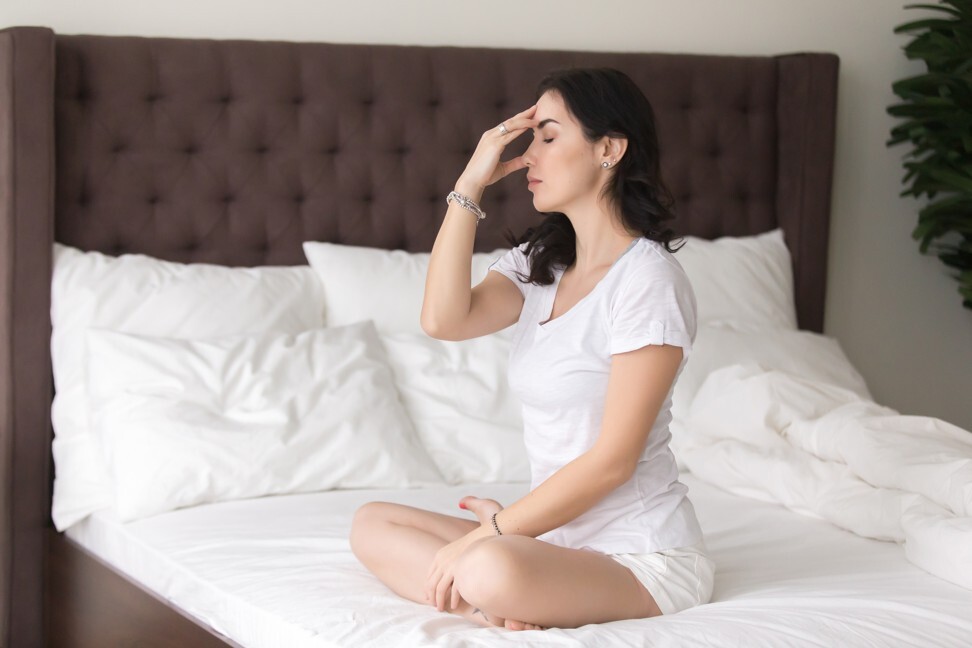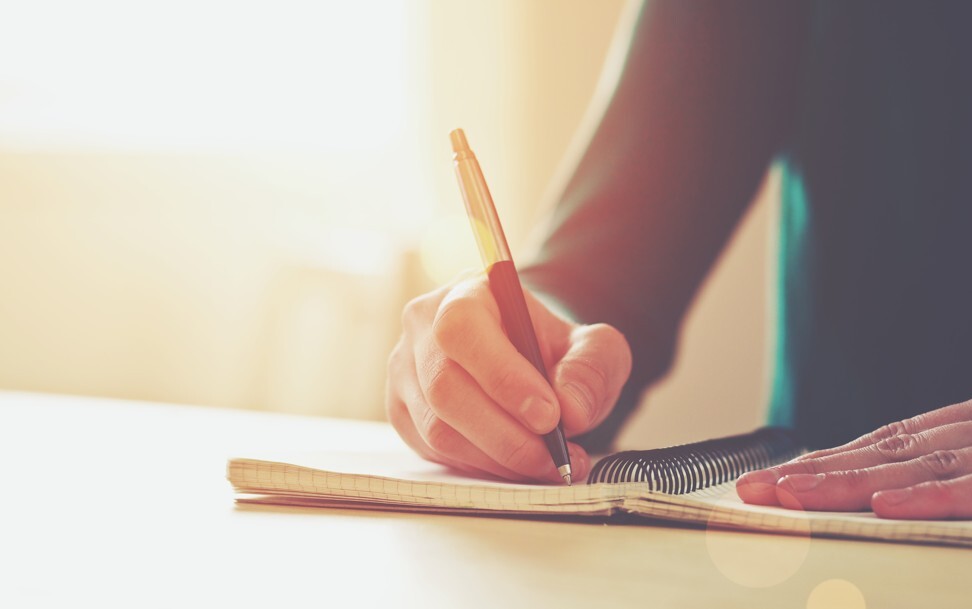
How to build emotional resilience and deal with stress better
- Cristina McLauchlan used to tackle stress with cigarettes and wine, but now she has built emotional resilience that helps her cope better
- She offers practical tips on how you can build your own, such as daily journaling, deep breathing techniques and drinking lemon water
After a year of sporadic work in New Zealand, Cristina McLauchlan was excited to receive a job offer in Hong Kong for an ambitious project promoting 27 bars and restaurants.
The seasoned public relations professional packed up her belongings and moved to the city, a place she had lived before, in 2016.
But the day after she arrived, just as she about to start work, McLauchlan received a text message telling her she had been laid off.

Instead of panicking, she reminded herself she had a place to live for a month and time to find another job. She told friends in Hong Kong and Macau about her situation and asked if they knew of any job opportunities.
Before the month was up, McLauchlan had a job as brand manager at Hong Kong vegan restaurant Mana, which she did for two-and-a-half years before switching to personal coaching, yoga and public speaking.
How meditation can make Hong Kong healthier
Emotional resilience helped McLauchlan deal with a stressful event in her life and is something more Hongkongers are tapping into after a tumultuous year that has included anti-government protests, the coronavirus pandemic and now the newly enacted national security law.
Emotional resilience requires self-awareness. You need to know what triggers prompt you to react in certain ways and try not to succumb to “knee jerk”, usually emotional, reactions. “Do you reply with anger, a negative reaction, or do you reply with understanding and compassion?” McLauchlan asks.

McLauchlan says achieving emotional resilience is not something that can be acquired overnight, but she has a few pointers for people on how to slow their minds and think about how they want to react to a stressful situation.
The first is to take deep breaths. “Whenever you’re anxious or stressed, your breath is short and shallow. When people are stressed, they light up a cigarette and take a deep breath in, and exhale out. That’s why people smoke, apart from nicotine. I used to be a smoker. But if you just breathe deeply, it’s free.”
McLauchlan suggests using the 4-7-8 breathing technique designed by American doctor Andrew Weil, founder and director of the Andrew Weil Centre for Integrative Medicine at the University of Arizona, in which you breathe in deeply for four seconds, hold it for seven, then exhale slowly for eight seconds. “You want long slow and deep breaths,” she says.
Sometimes, people will suddenly exhale like a deep sigh. “It’s a decompression, a release; your body needs to rid itself of stuff,” she says.
Weil believes this exercise can reduce anxiety, help a person get to sleep, control cravings and manage anger.
There’s a price you pay: energy and time has currency and value. Is the dollar value worth your spirit or worth your health, mental health?
Another effective way to build emotional resilience, McLauchlan says, is keeping a daily journal.
“Writing helps us to transfer what we are thinking from the brain, down to the heart and through the hand. When you are overwhelmed, write down what you are feeling … we get so lost in our thoughts … when you write things down, you are able to slow down.”

Having a routine also helps build a foundation for emotional resilience, McLauchlan says. “This allows you to take time to reflect. When I wake up in the morning, I do things to help and support me to be clear, calm and vital. I do deep breathing, journaling and drink water with lemon.”

Another aspect of emotional resilience is to be vulnerable to others. “There’s this persona we put on to show others we’re OK, but there’s only so much we can pretend to deal with and be resilient. That means being honest with yourself, and that takes work.
“You also have to stop comparing yourself to others because if you think that person is better than you, then you lack a foundation, and how can you be resilient in situations that are challenging if you never think you are good enough?” she asks.
“If we’re trying to fit 500 things in a day that can only fit 12, what is our body going to feel like? People wonder why they are so tired, why they can’t sleep, why they get sick. Pushing the body doesn’t necessarily mean you’re gaining more.”

Looking back at the events of four years ago, McLauchlan is now happy and where she wants to be.
“I know I was meant to be doing this instead of looking after 27 restaurants and being paid way more money and not having emotional resilience. There’s a price you pay: energy and time has currency and value. Is the dollar value worth your spirit or worth your physical and mental health? You have to think about these things.”

